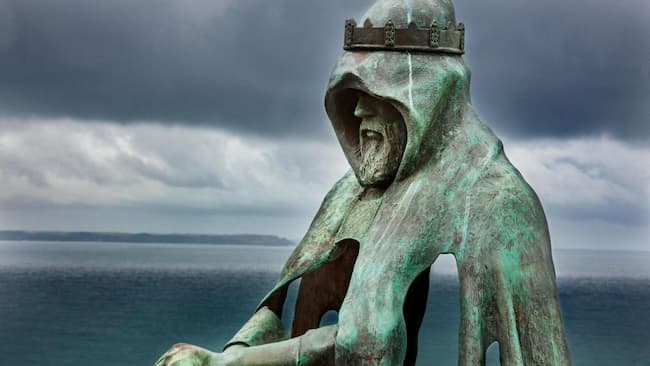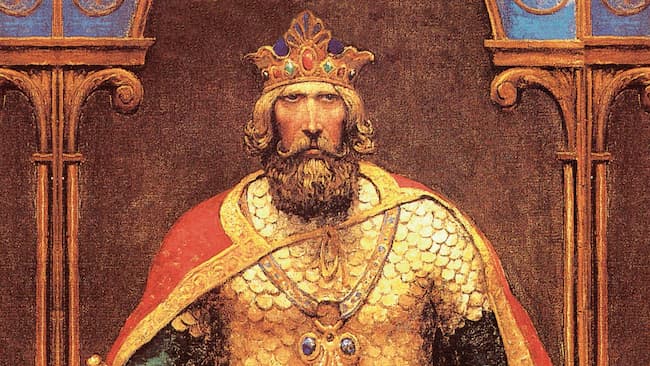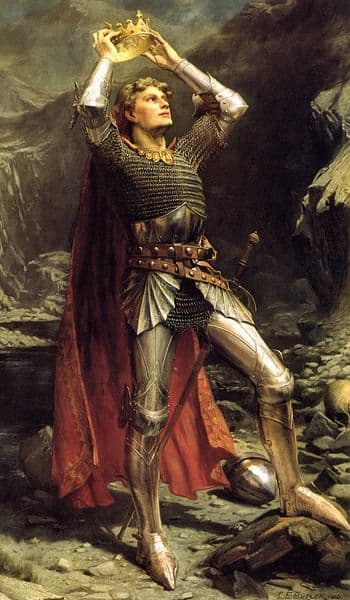King Arthur is one of the most famous figures in British history, but there is no consensus on whether he was a real person. Some historians believe that he was based on a real leader who fought against the Saxons in the 5th or 6th centuries, while others believe that he is a mythical figure.

The Evidence for a Real King Arthur
There are a few pieces of evidence that suggest that there may have been a real King Arthur. The earliest mention of Arthur comes from the Historia Brittonum, a book written in the 9th century by Nennius. Nennius lists Arthur as one of the leaders who fought against the Saxons at the Battle of Mount Badon.
Another piece of evidence comes from the Annales Cambriae, a chronicle of Welsh history written in the 10th century. The Annales Cambriae records the death of Arthur at the Battle of Camlann in 537.

There are also a number of place names in England and Wales that are associated with Arthur, such as Camelot, Glastonbury, and Tintagel. These place names suggest that Arthur may have been a real person who lived in Britain during the Dark Ages.
The Evidence Against a Real King Arthur
However, there is also some evidence that suggests that King Arthur may be a mythical figure. For example, the earliest mentions of Arthur come from works of fiction, such as the Historia Regum Britanniae by Geoffrey of Monmouth, which was written in the 12th century. Geoffrey of Monmouth was not a historian, and he is known for his embellishments of historical events.
Another piece of evidence against a real King Arthur comes from the fact that there is no contemporary evidence for him. There are no coins or inscriptions that mention Arthur, and there are no records of him in the writings of Roman or Saxon historians.
The Conclusion
The evidence for and against a real King Arthur is inconclusive. It is possible that he was a real person who fought against the Saxons, but it is also possible that he is a mythical figure. The debate over whether or not King Arthur was real is likely to continue for many years to come.

Frequently Asked Questions
1. What are the most common arguments for the existence of a real King Arthur?
The most common arguments for the existence of a real King Arthur are the following:
- The earliest mentions of Arthur come from the Historia Brittonum and the Annales Cambriae, which are both considered to be reliable sources.
- There are a number of place names in England and Wales that are associated with Arthur, such as Camelot, Glastonbury, and Tintagel.
- The legends of King Arthur are so widespread and popular that they must be based on a real person.
2. What are the most common arguments against the existence of a real King Arthur?
The most common arguments against the existence of a real King Arthur are the following:
- The earliest mentions of Arthur come from works of fiction, such as the Historia Regum Britanniae by Geoffrey of Monmouth.
- There is no contemporary evidence for Arthur, such as coins or inscriptions.
- The legends of King Arthur are so full of mythical elements that they cannot be based on a real person.
3. What is the most likely explanation for the legend of King Arthur?
The most likely explanation for the legend of King Arthur is that he was a real person who was later exaggerated and mythologized. Arthur may have been a leader who fought against the Saxons, but his exploits were later embellished by storytellers and writers.
4. What is the impact of King Arthur on British culture?
King Arthur has had a profound impact on British culture. He is a symbol of British unity and resistance to foreign invaders. The legends of King Arthur have inspired countless works of art, literature, and film.
5. What is the future of the legend of King Arthur?
The legend of King Arthur is likely to continue to be told and retold for many years to come. The stories of King Arthur are timeless and universal, and they continue to capture the imaginations of people around the world.

